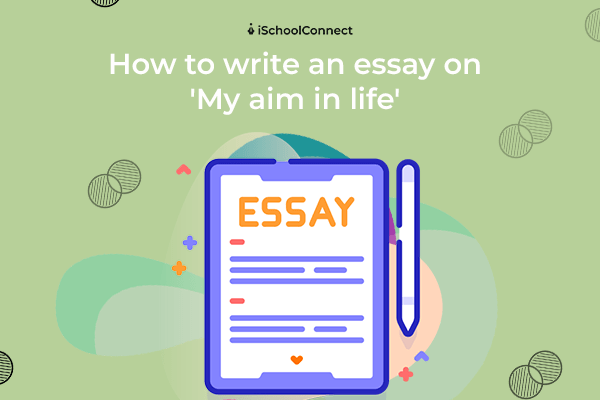Table of Contents
A literary piece that expresses the author’s viewpoint on a subject, whether it be scholarly, editorial, or even amusing, is referred to as an ‘essay.’ Although there are countless ways to approach essay writing and an infinite number of themes, it has been proven that effective essay writing adheres to a set structure.
Below, we go over that structure and how to use it with any kind of essay you write. Let’s begin with the foundation of every effective essay-the subject.
You must have a thesis for your essay

Before beginning to write your essay, you should think about your argument, type of essay, and audience. Your thesis or the central idea of your essay is the most important of these.
The main argument you are attempting to make is summarized in your thesis statement. For instance, Bertrand Russell’s essay ‘In Praise of Idleness’ makes the argument that people prioritize labor too highly and disregard leisure time.
The best approach is to introduce your argument early in your essay, , possibly even in your title. . You should restate it frequently throughout the essay, particularly while summarizing your main points in the conclusion.
Thus, your thesis is supported by the remainder of your essay. Whatever gets the task done can be used, including empirical data, testimonies, logical inferences, or even persuasive speech. The key is to expand on your initial idea
Types of essay
Essays exist in a wide variety of styles, just like any other genre of writing. As with admissions essays, the type is sometimes specified by the assignment, and other times it is decided by the thesis. It is useful to be aware of your possibilities, therefore the following are core essay types-
Argumentative essay
Argumentative essays present or support a viewpoint. When writing your first essay, keep in mind that this is the most common type of schoolwork.
Admissions essay
The majority of universities need an admissions essay with your application, which usually discusses why you are interested in their institution.
Persuasive essay
An essay written to persuade or convince the reader of a particular topic is what is meant by the term ‘persuasive essay.’ It is similar to an argumentative essay in that both firmly support a certain point of view, but the distinction is that persuasive essays must convey their case and persuade the reader, while argumentative essays must only give their case.
Compare-and-contrast essay
A compare and contrast essay is more effective than an argumentative or persuasive essay when you wish to provide equal attention to two opposite topics.
Personal essay
Like David Sedaris’ writings, personal essays frequently contain anecdotes or true accounts of the authors’ lives. The thesis might be flexible or interpretative as they frequently adhere to narrative structures.
Expository essay
An expository essay provides in-depth explanations on a certain subject to increase reader knowledge. With one significant exception, explanatory essays won’t allow you to have a prejudice, unlike argumentative and persuasive essays.
The essay writing process

It’s important to use an effective writing process, whether you are writing an essay, research paper, term paper, novel, short story, poem, screenplay, a blog post about essay writing, or anything else. Even if you like to write in a stream-of-consciousness style for your first draft, you still need to have an organized method so that you can edit and polish it.
It is recommended to use the conventional five-step writing method for creating essays:
Brainstorming
It is usually beneficial to brainstorm your ideas before starting to write. Try to come up with as many ideas as you can for your essay based on the prompt or your argument.
Preparing
You will incorporate your essay format, which is discussed below in the preparation step. Find any supplementary reference or empirical support right away. The style manual you are using will determine how you should format your citations. The three most popular academic style manuals are MLA, APA, and Chicago, and each includes specific guidelines for citing sources of any kind, including books, articles, websites, speeches, and YouTube videos.
Drafting
In this phase of the essay-writing process, you sit down and write your first draft. This is your first draft, not your final draft, so don’t feel pressured to make everything flawless. Instead, permit yourself to make mistakes. You won’t see the big picture if your attention is on perfecting every single phrase.
Revising
Your second draft, third draft, and, if necessary, your twelfth draft are all included in the revisions stage. Discuss all the finer points and details that you skimmed over in the initial draft. Be careful of your word choice, clarity, and more complex writing strategies.
Proofreading
After completing all the modifications, it’s time for the finishing touches. Check your essay for typographical flaws, formatting problems, and grammatical mistakes.
Key takeaways
- Writing essays helps students learn and enhances comprehension. It simplifies concepts and details that you can utilize in writing. Effective essay writing follows a set structure which also helps in creative writing.
- You should consider your argument, essay type, and audience before starting to write. The most important of these is your thesis or the main idea of your essay.
- Whether you are writing an essay, research paper, term paper, novel, short story, poem, screenplay, blog post about essay writing, or anything else, it is essential to follow an effective writing process.
Did you find this blog informative? If so, please share your thoughts in the comments section below. Click here to contact us for more information on essay writing. We would be happy to assist you with your queries.
Liked his blog? Read next: Don’t miss these 5 statistical facts – Social media essay.
FAQs
Q1. What are 3 good topics for an essay?
Ans- Writing about yourself is the easiest way to write an essay. You can also write on the topics given below or choose a similar one-
- My Favorite Teacher.
- My Aim in Life.
- My Favorite Game
Q2. How many paragraphs is an essay?
Ans- There is no specific rule stating that an essay must have a certain number of paragraphs. It is argued that an essay must have a minimum of 3 or 5 paragraphs, but you can write as many numbers paragraphs unless the word count is specified.
Q3. How do you write a 100-word essay?
Ans- A 100-word essay is a rather brief composition. However, it should be carefully planned. There should be four to five clear paragraphs in your article. An introduction, two or three body paragraphs, and a conclusion are required.







